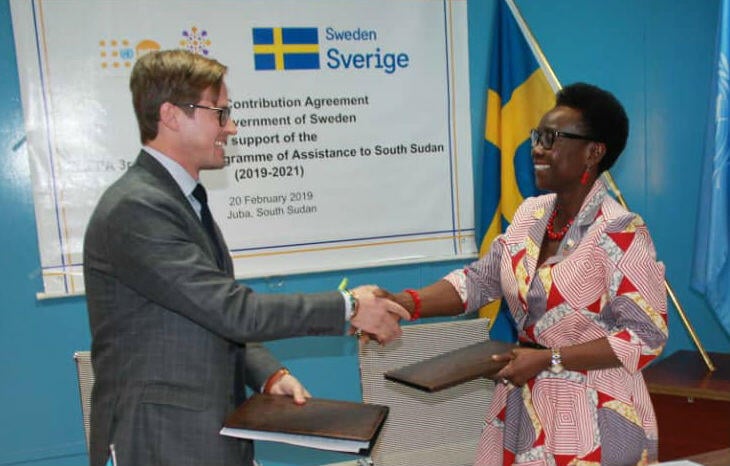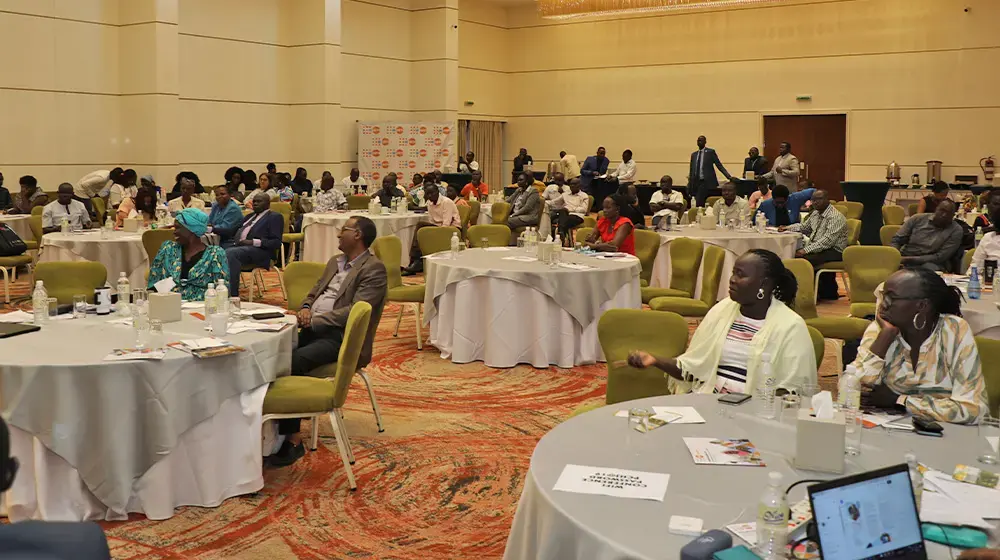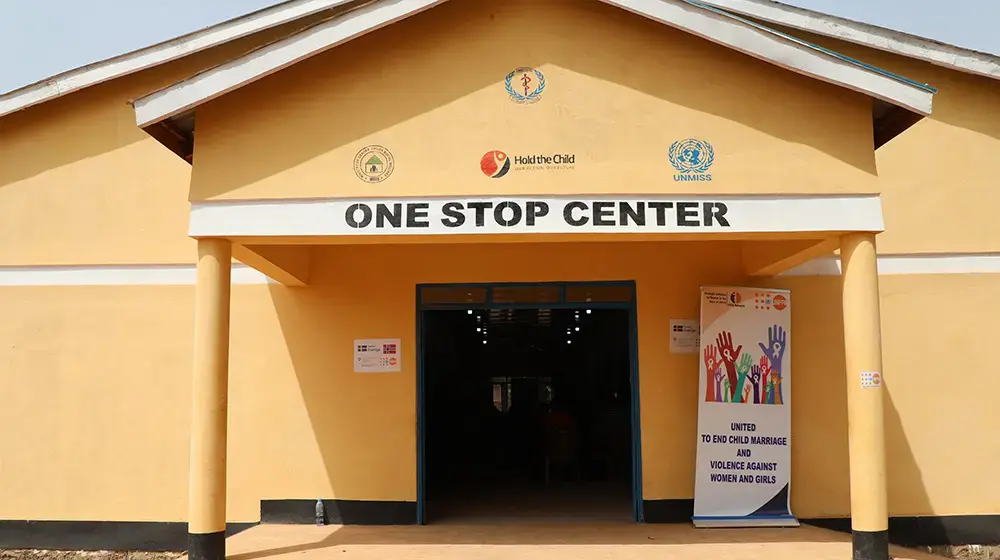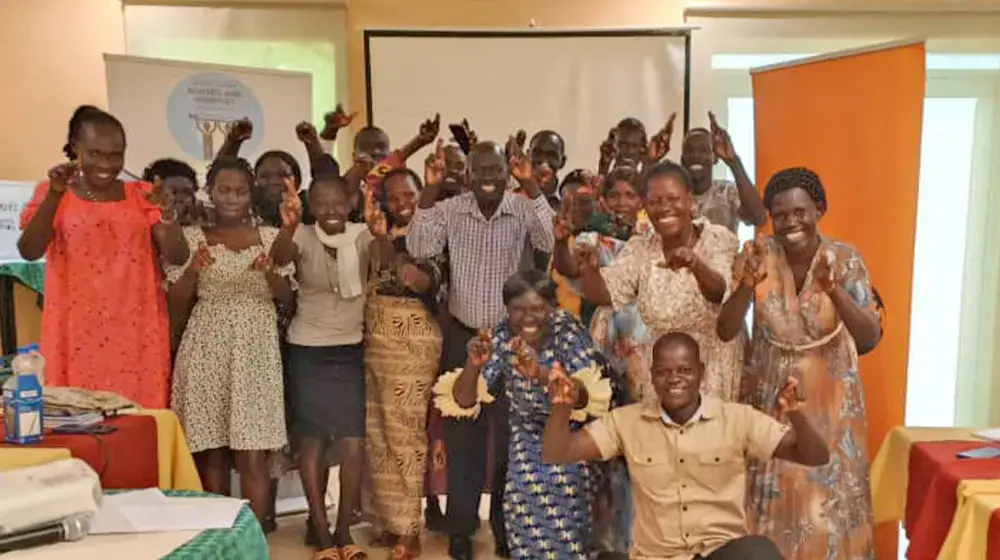Juba, South Sudan – UNFPA, the United Nations Population Fund, and the Government of Sweden today signed an agreement worth 120 million Swedish Krona (approximately USD 13 million) to boost sexual and reproductive health programmes in the country.
The contribution will support the implementation of UNFPA’s 3rd Country Programme for South Sudan over a period of three years (2019-2021), which seeks to improve access to maternal and newborn care, family planning, youth-friendly health services, and prevention and response to gender-based violence, among others.
UNFPA Country Representative Dr. Mary Otieno said Sweden’s contribution will go a long way in terms of bringing South Sudan closer to UNFPA’s transformative agenda of zero preventable maternal deaths, zero unmet need for family planning, and zero gender-based violence and other harmful practices.
“Sweden’s support demonstrates its strong commitment to UNFPA’s mandate as we celebrate our 50th anniversary this year, as well as the 25th year of the adoption of the Programme of Action of the International Conference on Population and Development (ICPD),” Dr. Otieno said.
Swedish Ambassador His Excellency Hans Henric Lundquist said Sweden is proud of its support to UNFPA’s Country Programme in South Sudan, encompassing the next three years.
“Sweden and UNFPA have had a fruitful collaboration over the past years and we are looking now to strengthening it even further to improve the outreach to some of the most vulnerable populations in need of critical services,” Ambassador Lundquist said. “We in particular welcome the central role of the Ministry of Health of South Sudan and its engagement with UNFPA, which is of paramount importance for ensuring the successful implementation of the Country Programme. The work of UNFPA is fully in line with and resonates with Sweden´s strategy for development cooperation in South Sudan.”
South Sudan remains in the grip of a humanitarian crisis despite the signing of the revitalized peace agreement in September last year. The reproductive health indicators in South Sudan are among the worst in the world, including maternal mortality ratio at 789 deaths per 100,000 live births (UN, World Bank estimates, 2015); adolescent birth rate at 158 per 1,000 live births; low contraceptive use at 4.5 per cent for all methods (with only 1.7 per cent for modern methods); and 30 per cent of new HIV infections occurring among young people 15-24 years old.
Gender-based violence has also continued to be a key feature in the conflict and humanitarian situation but is generally prevalent across the country. A 2017 study in three states by the International Rescue Committee showed prevalence of GBV at 65 per cent. The GBV Information Management System reported 3,585 cases in 2017, with 97 per cent committed against women and girls. Intimate partner violence accounted for 46 per cent of the cases while sexual violence accounted for 17 per cent.
Sweden was also a major partner for UNFPA’s midwifery project in South Sudan from 2015 to 2018, which has contributed to the improvement of maternal health through the training and deployment of midwives and other health professionals, equipping of health facilities and strengthening midwifery and nursing policies in the country.
In 2011, South Sudan had only eight qualified midwives but through the support of the strengthening midwifery services project that was jointly funded by Sweden and Canada, and with support of the Ministry of Health, the country now has more than 700 qualified midwives. In addition, South Sudan now has more than 25 obstetricians and gynaecologists, up from a dismal six obstetricians in 2011.
For more information, contact:
Arlene Alano, Communications Specialist / E-mail: alano@unfpa.org





